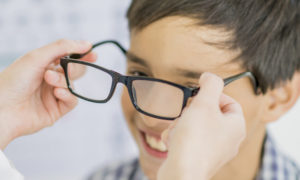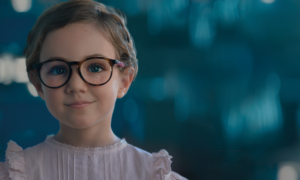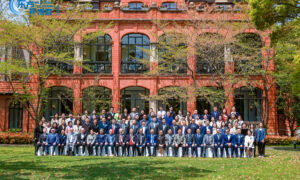Sponsored content
September 15, 2020
By Ariel Cerenzie, OD, FAAO, FSLS
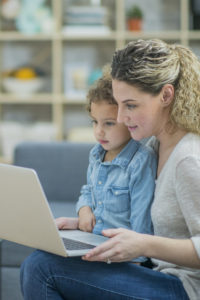 As optometric practices around the country emerge from the COVID-19 shutdown there is hope that maybe things are returning to normal, or something like it. But the truth is, almost everything is different now.
As optometric practices around the country emerge from the COVID-19 shutdown there is hope that maybe things are returning to normal, or something like it. But the truth is, almost everything is different now.
Safety protocols that changed how we could see patients are still in place, and the number of in-person visits is still fewer than it used to be. This is a problem, especially for parents of newly diagnosed myopes, because an effective myopia management program is a years-long process and needs frequent contact between parents, the patient and their eye care professional.
Plus, the ongoing pandemic restrictions are putting kids in the kinds of daily habits – such as increased near work, screen time requirements and much less outdoor play – that are thought to increase myopia progression.
Yet even in this restricted environment there are ways to adapt and deliver the best possible care to myopic patients.
In our current environment, it helps to make yourself more accessible. Pretty much all of my myopia management patients have my email address and can contact me directly when they need to, and I’ll respond. In reality very few actually do email me, but it’s important that they know they can.
I also want them to feel informed about myopia. I often forward information about myopia and new research available via email so they can learn even outside of office visits with me. For example, I came across a recently published study on whether home confinement was increasing the progression of myopia and shared it with parents of myopic children.
In a way, it has become easier to have those early discussions with parents about myopia management because there seems to be an increase in awareness, largely driven by the quarantine environment. Parents walk into our practice with concerns about the amount of near-work they see their children doing with the increase in virtual learning, combined with less time spent playing outdoors. So those conversations now have been very easy compared to five or six months ago, when parents without personal experience with myopia were more difficult to reach.
Our practice also does virtual consultations with parents after identifying a child’s need for myopia management. With more parents at home during the day, it is easier to catch them free for a conversation. We get to answer questions in real time, and this option saves them a trip back to the office. We can also guide them to more resources before and after the consultation to learn about the importance of intervention.
On the practice management side of things, this is a good time to do more outreach to your existing patient group. Whenever I see adult patients, myopic or not, I always ask how their kids are doing. Also, build your contact with other providers, such as pediatricians, who are likely seeing increased levels of myopic concern among their patients. These providers are also answering to concerned patients on the effects of excessive screen time. Let them know to turn to your practice as a solution for worried parents.
In addition, this rising awareness about myopia can help ECPs thinking about starting in myopia management to build their practice and ease into adding that care. I’d encourage raising the topic with parents when you can, and you should expect some unprompted questions from them too. That can give you a sense of the need and the level of interest from your patient pool.
As COVID-19 continues to change our patients’ daily lives through increased virtual learning, less engagement in sports and outdoor activities, and more parents working from home, it presents ECPs with an important opportunity to preserve children’s ocular health and vision through myopia management. ECPs commonly provide prophylactic care for many ocular conditions. Now, more than ever, COVID-19 has required that we stand at the front line for our young myopic patients.
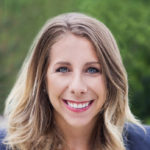
Ariel Cerenzie, OD, FAAO, FSLS, is in practice with Vision Source Studio 20/20 in Charlotte, North Carolina. This article is sponsored by Essilor.


